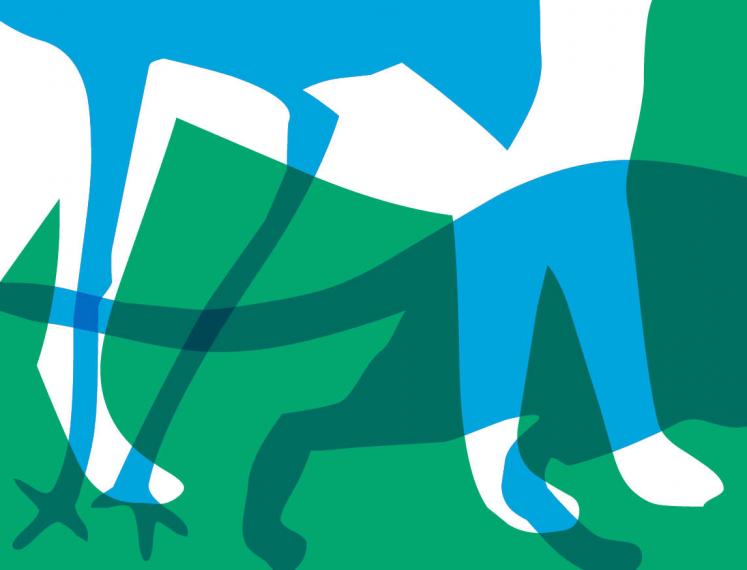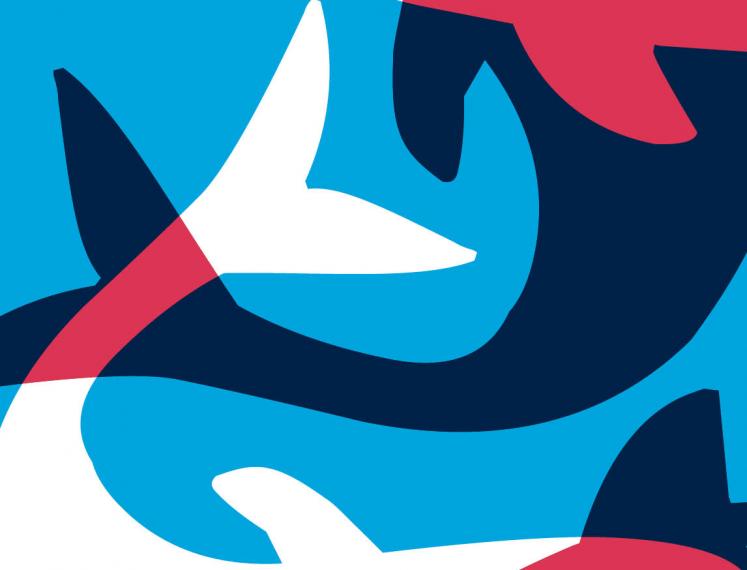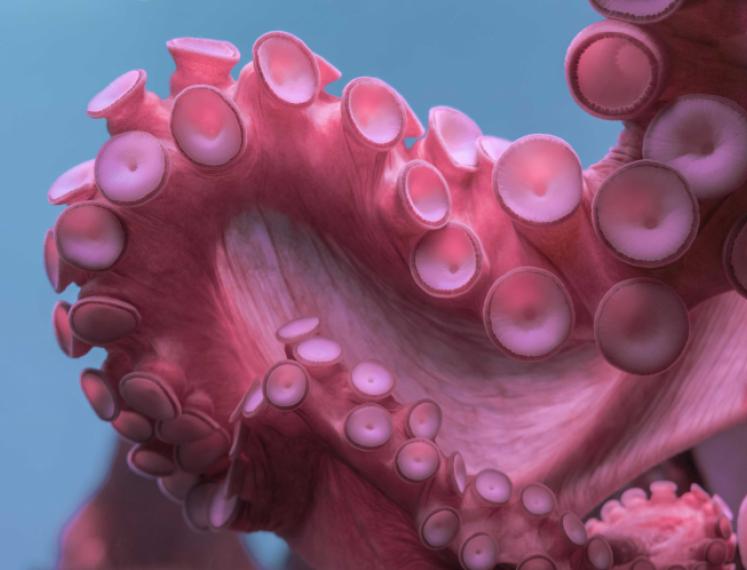
Understanding Our Animality
In our lecure series Animals and Us, we'll discuss our relationship with animals and how we see them. But does a distinction between ‘us’ and ‘them’ really exist? After all, aren’t we animals as well? On Wednesday October 27, philosopher Melanie Challenger talks about human struggles with being animal in How To Be (a Good) Animal. We asked her a few questions beforehand.
Q: What made you decide to study the human relationship to being animal?
A: Well, this came about as the logical next stage in a longer enquiry into our natural and environmental history. My earliest work was creative as a student of literature. But I was always drawn to writers like Kafka, for instance, or Gombrowicz, who were really writing philosophy. I wanted to understand what we are - not only what cultural and societal forces shape us but what biological and physical forces make us. And sometimes that "we" was purely human, and at other times that "we" really embraced life on Earth. What does it mean for there to be life? And what does it mean to live in an age of extinctions? And that flowed into moral philosophy. I kind of spilled into moral philosophy intellectually and intuitively because of the kinds of research and work I was doing. Those questions about what we are tipped over into questions of what we ought to be. Is there good in the world? Where do we ground value? And so forth. Really that is how I came to recognise the central importance of our own understanding of animality, of being an animal, and what flows from this. It was immediately clear to me that we struggle to accept that we are animals. People get hot under the collar about that word "we". But I'm yet to meet a person of any culture in the world who doesn't have some kind of struggle with being an animal, whether that takes the form of a fear of death or of a discomfort with disease and danger. Being animal affects all of us.
Q: What moral lesson can we learn from other animals? Can you give us a take-away lesson?
A: The most immediate and the most threatening lesson from other animals is this: they have the same intrinsic value as we do. That can really cause the greatest anxiety in people, and also an instinctive reaction against this idea as a possibility. We are caught in this very difficult position as a species. We are a moral predator. That is such a conundrum. It would have been much easier in the history of life if a moral animal had emerged from herbivorous taxa. As it is, we are death-dealers that fear death and also place moral value on life. Yet no good can come of using false ideas to hide away that conundrum. When we tell ourselves that we have some special moral essence that no other animal possesses, we are deceiving ourselves. We have moral agency - this is true and extraordinary. But possessing moral agency doesn't limit moral subjects. And, indeed, it is hard to justify strong claims that other animals oughtn't to matter to us morally. I believe it is better to recognise that if we have true moral value then so does the rest of life on Earth. That doesn't mean that all moral duties would be the same. Life on Earth is incredibly variable and what other species need or want is entirely different. But it does mean that other lives beside human lives also matter, if, by the same logic, ours do. The take-away is that if we want to hold onto morality, we need to be less exclusive about it.
Q: What unexpected values do we share with other animals? Or is there an animal we share a specific unexpected value with?
A: That's an interesting question. Many would argue that kinship across species is an unexpected value in nature - the ability of other species to recognise one another and develop bonds beyond the species barrier. That is certainly extraordinary. And yet it does happen in knowing and less sapient ways among animals. In evolutionary terms, we see it in processes of the emergence of a domestic phenotype and we also see it in the emergence of mutualism - so the species that tolerate and even cooperate because of a shared benefit of some kind. But sometimes animals seem to form friendships and bonds because of the way they are perceiving or relating to one another. The fact that we can develop bonds of respect and affection with other creatures, and they with us, is a rather remarkable thing in nature. In some ways, that is the shared value of generosity, if we take generosity to mean the giving of something more than one might expect in the general order of things.
Q: Any pre-reads you would recommend before visiting the lecture?
A: I strongly recommend Ernest Becker's Denial of Death. John Gray is a provocative thinker, but his new book on Feline Philosophy is an enjoyable edition to his oeuvre. And I would recommend the scientific writings of individuals like Sarah Blaffer Hrdy or Alan Jasanoff. But Mary Midgley is probably my top tip.
Melanie Challenger is a writer and broadcaster on environmental history and philosophy, Deputy Chair of the UK's Nuffield Council on Bioethics, host of Enter the Psychosphere, and author of the new release, How to Be Animal: A New History of What It Means to Be Human. Melanie offers insight on how we can ‘become animal’ without reverting to amoral, self-serving behaviors and explains why she sees the simple, clean messaging around environmental issues as being problematic.
Want to join the lecture? Click here for more info and tickets


